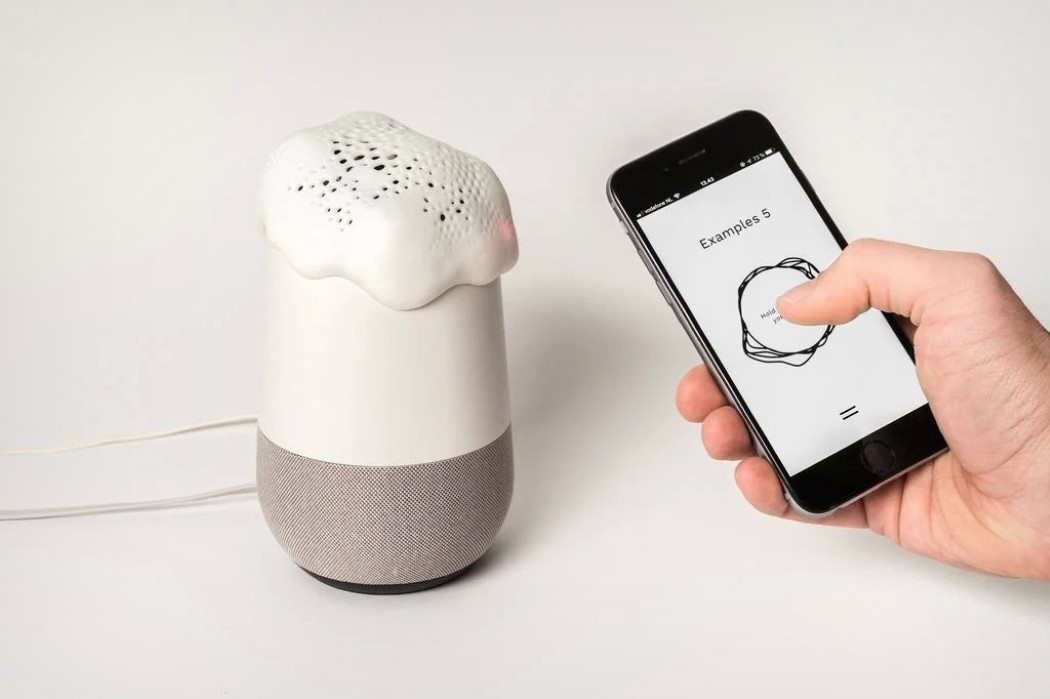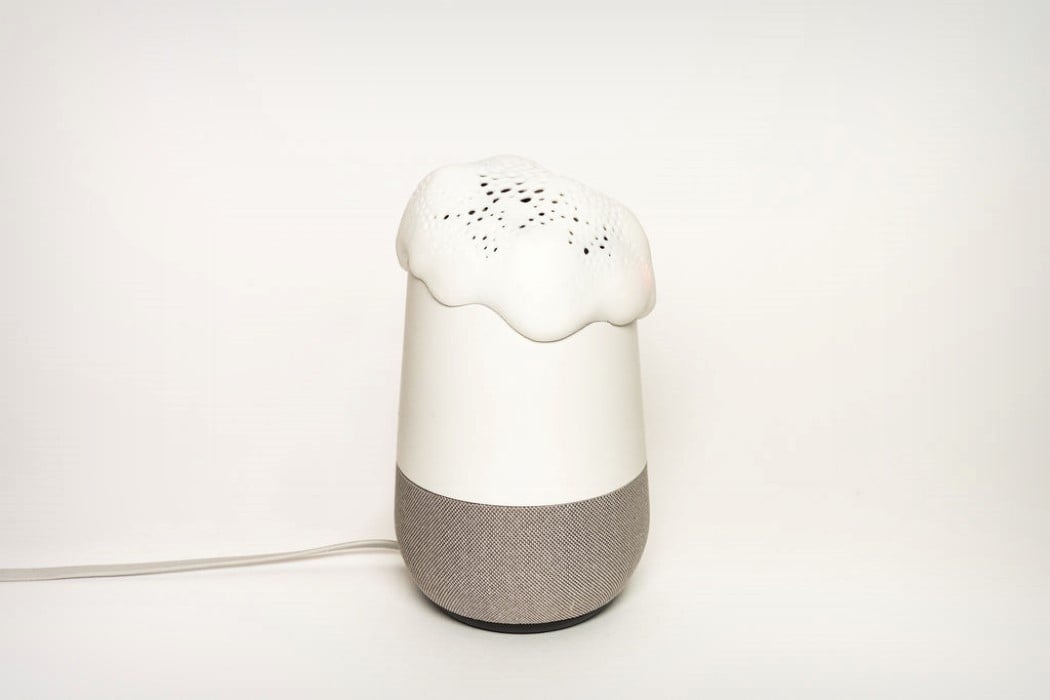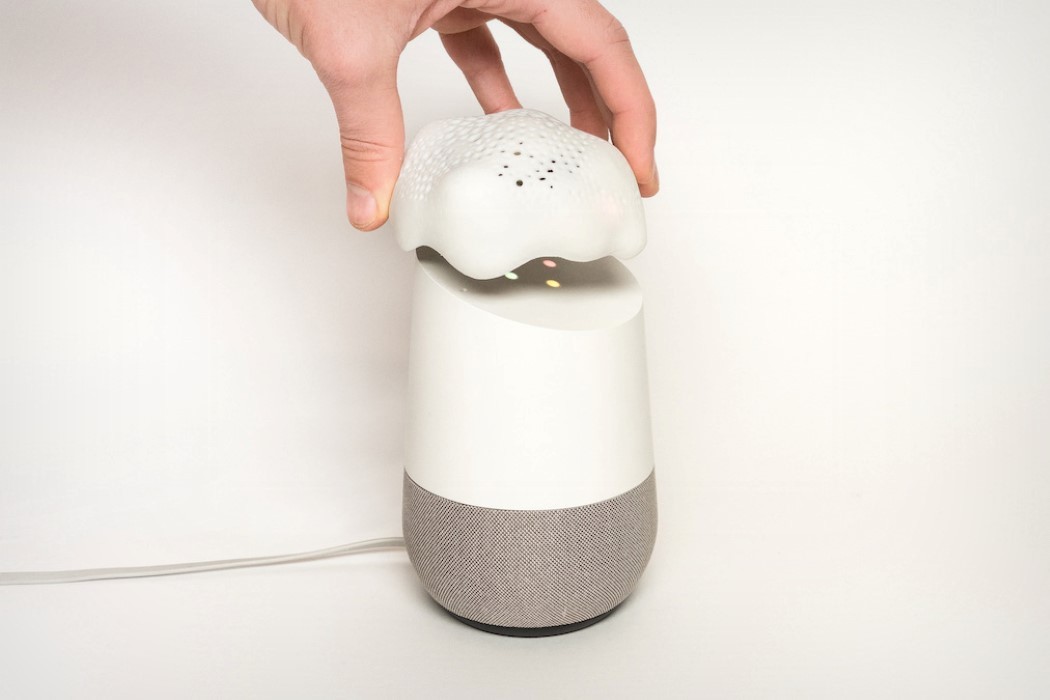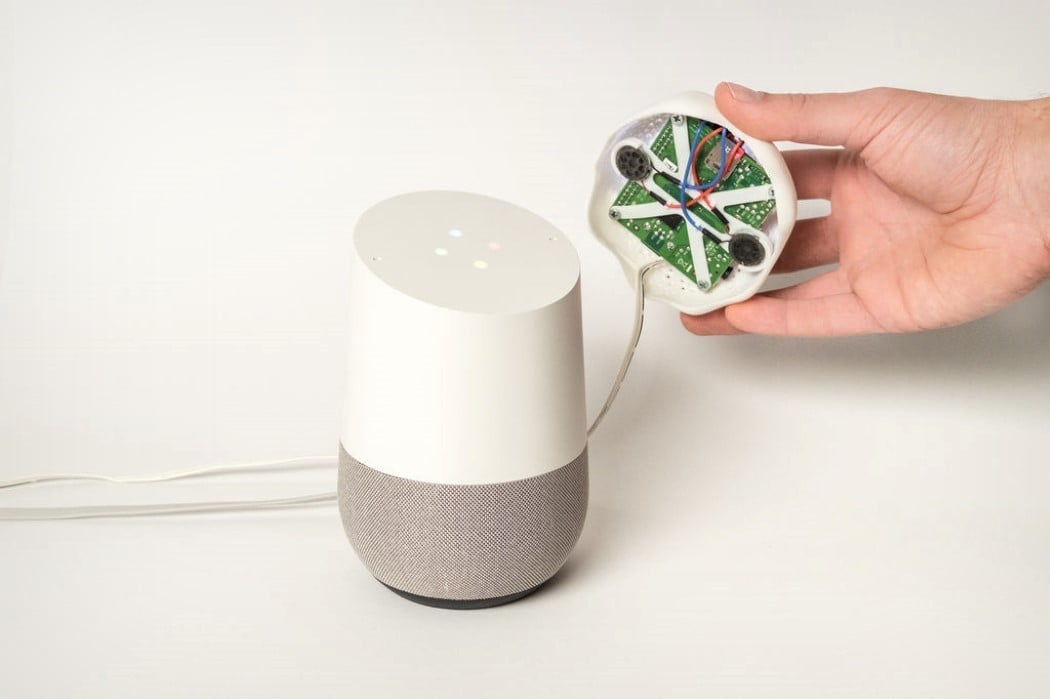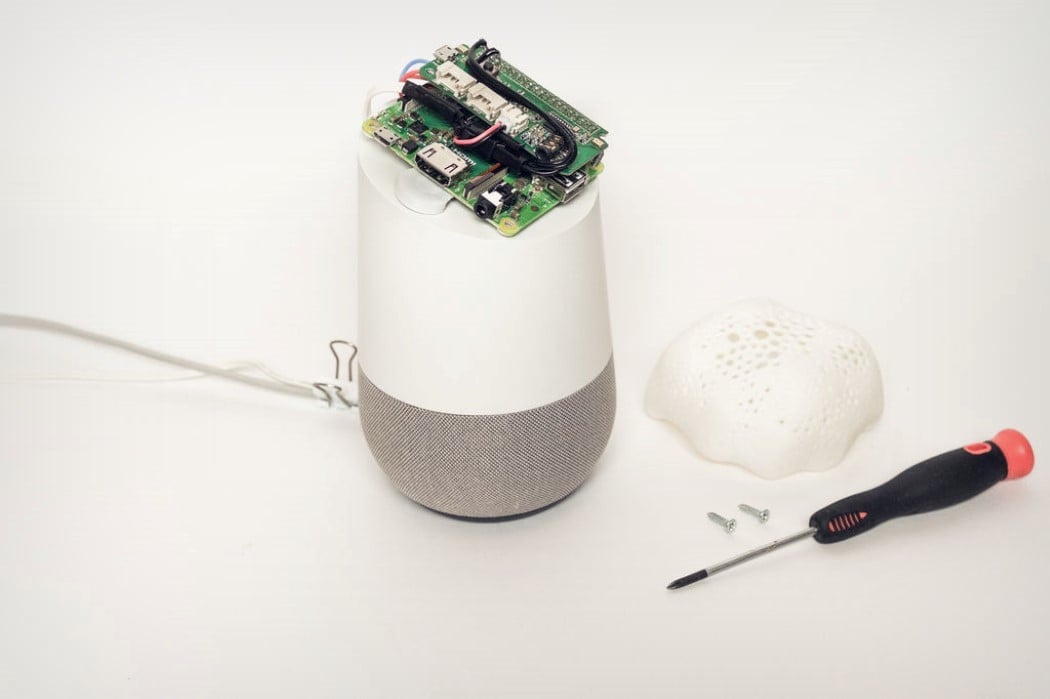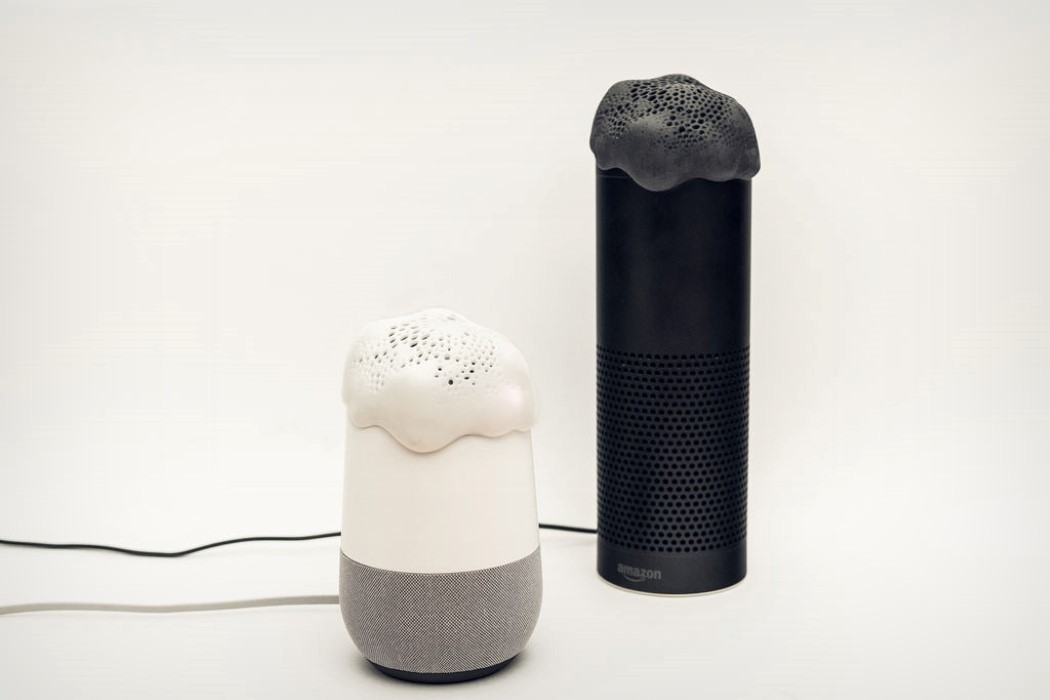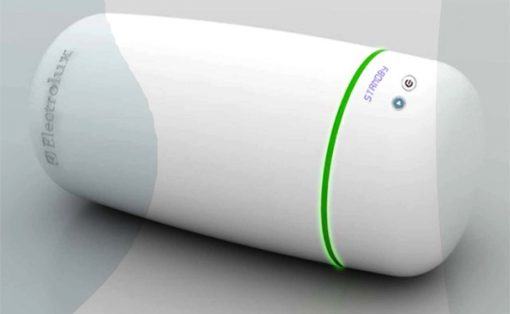Project Alias looks and behaves like a parasitic fungus, in the sense that it latches onto its host, feeding off it and inhibiting its functions for its own gain. It may sound a little extreme, but it does it all for the sake of privacy. Smart speakers now sit in one out of three American homes… and while they’re great in terms of convenience, they’re a privacy nightmare. Smart speakers are always listening in on everything you say or do around your home, and companies create databases and profiles based on the tonnes of information they collect to sell ads and products to you. The two largest players in the market, Amazon and Google, literally have business models that revolve around harvesting personal data to sell to the highest bidder, which in turn sell you products and or services.
The Project Alias device sits atop the smart speaker, like a fungal growth, blocking out its microphones, so that the speaker can’t listen to you. However, when you do want to access the smart speaker, say a keyword and the Project Alias lets your command through to the speaker, effectively deafening the home assistant when you don’t want it listening, and bringing it to life when you do.
Designers Bjørn Karmann & Tore Knudsen designed Project Alias as a defense tactic, and modeled it on a fungal species that aptly captures the way the parasitic product behaves. “This [fungus] is a vital part of the rain forest, since whenever a species gets too dominant or powerful it has higher chances of getting infected, thus keeping the diversity in balance,” says Tore Knudsen. “We wanted to take that as an analogy and show how DIY and open source can be used to create ‘viruses’ for big tech companies.”
The project is an entirely open-source piece of tech that contains a 3D printed outer housing, a Raspberry Pi board, a microphone (for your voice commands), a set of speakers (that block out the home assistant’s internal microphones with a static), and a line of commands that are all readily available on GitHub, although I’d totally spring for a ready-made version of this. I imagine it won’t be long before companies begin building and selling their own Project Aliases, but then again, that goes against what the project stands for in the first place.
Assemble the product, plug it into a power source and you’re ready to go. The product sits on top of a Google Home or Echo, covering its microphones, while speaker modules inside the Project Alias produce a white noise that prevents the home assistant from hearing anything. In order to communicate with the home assistant, you can set your own catchphrase that the Alias recognizes. Program it to respond to “Hey Brad” or “Hey Speaker”, or “Hey data-mining corporation” (if you’re a bit of a nihilist), and the Alias picks up on the cue, triggering the home assistant to listen to the rest of your command. The Alias’ voice command recognition feature works locally and the device doesn’t connect to the internet or store any information on the cloud, making it perfectly safe and secure, allowing you to hack your smart speakers to work perfectly well without them invading your privacy, and preventing mega-corporations from gathering any further data on you and your personal lives. And there’s a side advantage to this too. You can now rename your smart speaker to pretty much anything you want, rather than being restricted to “Hey Google” or “Hey Alexa”. Rather cool, isn’t it?
Designers: Bjørn Karmann & Tore Knudsen
Click Here to build your own Project Alias
Click Here to build your own Project Alias

